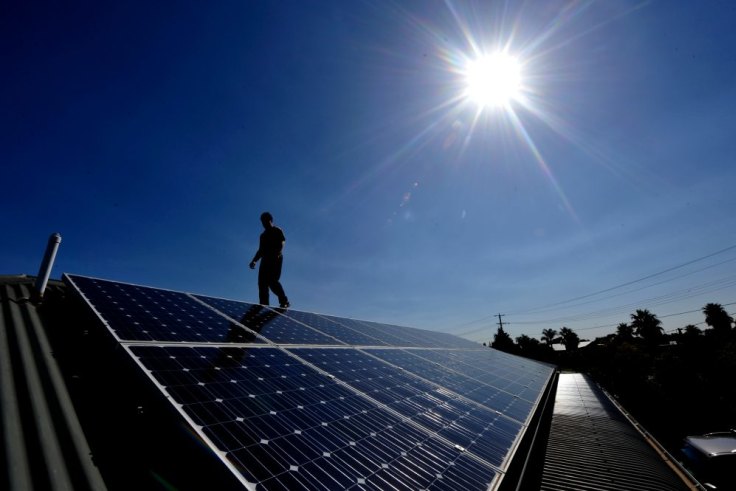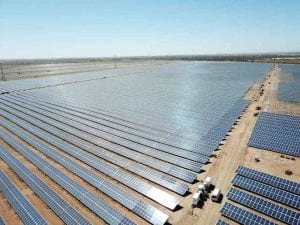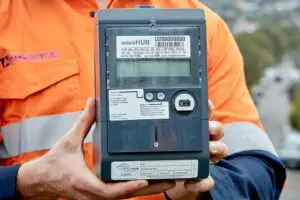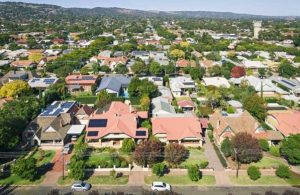Australians love their rooftop solar. That is why more than anywhere else, Australians spend their own money installing home solar – over 3 million kilowatts (kW) last year.
The 2.5 million Australian households with rooftop solar have reaped massive benefits, including lower power bills, lower greenhouse gas emissions, and even helping reduce power prices for non-solar homes.
The latter occurs when surplus solar power, exported to the grid, undercuts expensive electricity from fossil fuels, thereby reducing wholesale electricity prices.
Despite the widespread economic benefits of household solar, there are some concerns that the benefits aren’t shared equitably enough.
Community and social service organisations have pointed out that those in social housing may not be able to afford solar, and renters may be unable to fix solar panels to apartments.
These ‘solar have-nots’ may also face higher network costs in the long-run as households with rooftop solar use less power from the grid, forcing networks to charge their remaining users more.
This unfair and unequal access to the benefits of solar is no doubt a major problem that needs to be addressed; but the primary solution being considered by advocacy groups like Vinnies, ACOSS and SA Power Networks and the electricity market rule maker, the Australian Electricity Market Commission (AEMC), may end up doing more harm than good.
The proposal on the table right now suggests charging solar homes for the right to export power, to offset rising network costs for non-solar homes.
AEMC’s draft determination proposes to tax solar homes 2-4 cents per kWh for solar exports.
It says it will then be up to State Governments and the regulator to decide whether power network companies’ proposals to re-distribute the extra solar tax they will reap are “fair”, By the way, no fossil fuel generator has to pay for exporting each kWh it makes.
Remember the carbon price, the huge outcry from LNP politicians and the fossil fuel industry? Well that carbon price of $23/tonne equalled 2-3.5 cents per kWh made by polluting black and brown coal power stations.
All up, this proposed solar tax will reap networks hundreds of millions of dollars a year from solar homes. Unfortunately, this amounts to a ‘tax for not polluting’, and could have the perverse effect of seeing the solar value all users share today collapse.
AEMC’s 2-4 cents tax will cut solar export income by half to two thirds once taken from today’s low solar feed-in tariffs of around 5-7 cents.
Rather than export their extra solar power, some solar homes may buy a battery to store midday power for own use later. And they might increase their own power use by running the air conditioning colder on hot days.
Those yet to invest in solar might choose to put in a smaller system and a battery, markedly cutting their purchases off the grid but avoiding exports all together. Or they might just decide it’s not worth installing solar at all.
This would be unfortunate, because everyone deserves access to the many benefits of clean, affordable solar power. Rather than a tax that would potentially disincentivize solar uptake, we should keep growing the solar pie bigger, and improve benefit sharing through innovative technologies like community batteries.
How would this work? We would continue encouraging more solar homes, and solar exports, delivering bigger cuts to greenhouse emissions. Networks would buy the growing midday solar surplus, not tax it.
Then, store it in community grid batteries built at local substations by the networks, reselling the surplus power to retailers later in the day when demand and prices are higher.
The price difference involved through time shifting cheap daytime excess solar power into expensive evening peaks would pay for the costs of grid storage.
This would unload networks at peak times, reduce power costs for all electricity users by cutting coal and gas power station peak use even more, and greenhouse gas emissions too.
Part of the margin created from this day/evening arbitrage could rebate part of the network cost in power bills for those in social housing, and even pay to install energy efficient appliances, lighting and insulation in their dwellings, reducing ongoing power use.
These steps will deliver a cleaner, smarter, more responsive power network. Coupling distributed local generation to local storage will have the added benefit of making networks far more resilient to extreme weather damage caused by climate change.
The beautiful thing about solar is that it’s a win-win-win solution. And we have the technology today that can ensure the benefits are shared fairly.
Solar benefit-sharing in Australia doesn’t have to be win-lose; so rather than focusing on taxes that curtail the technology, let’s use imagination and creativity to grow the solar power pie, and deliver a bright future for solar homes, networks, consumers and the planet.
Andrew Stock is a Councillor with the Climate Council, Enterprise Professor at the University of Melbourne, and Chair of Advisory Board for the University of Melbourne’s Energy Institute










